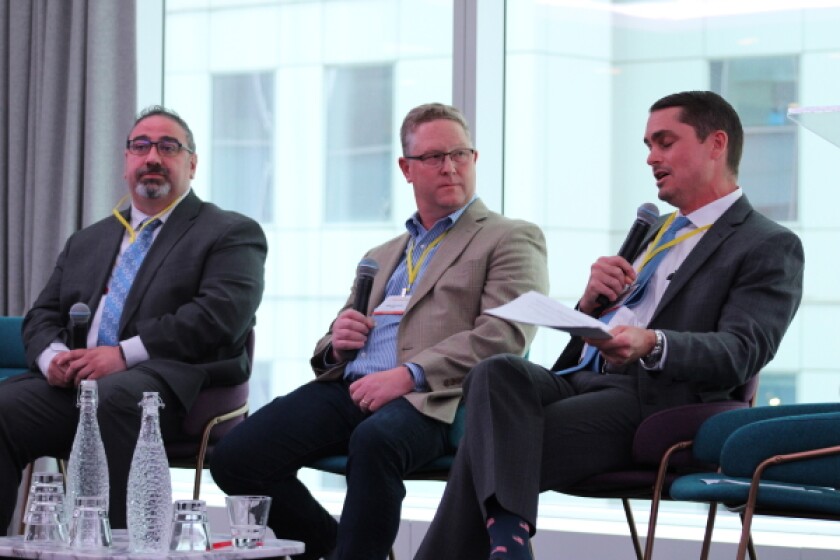Companies shouldn’t tar all non-practising entities and licensing organisations with one brush, speakers at Managing IP’s Intellectual Property and Innovation Summit told delegates on Tuesday, May 24.
Counsel at Canon, Xperi and McKool Smith pointed out this week that NPEs come in all shapes and sizes and shouldn’t all be lumped under the term ‘patent troll’. Some noted that efforts to do so were sometimes underpinned by a desire to weaken the US patent system.
Mike Schwartz, senior vice president for intellectual property litigation at Adeia (a subsidiary of Xperi) in California, argued that it was important to distinguish nuisance lawsuit entities from sophisticated and organised licensors.
“To me, an NPE finds patents that are on the fringes and uses them for low-dollar and high-volume litigation campaigns,” he said.
“But that has to be differentiated from legitimate patent licensing organisations that stay close to a core mission and have robust R&D efforts and spend.”
Josh Budwin, principal at McKool Smith in Austin, noted that it might be useful to have a bucket for ‘bad’ NPEs and ‘good’ NPEs. He pointed out that while universities could probably be defined as NPEs because they had patents they didn’t practise, most people looked on them more favourably.
Adding to Budwin’s point, Schwartz said: “If the university is using revenue derived from the patents and feeding that back into further research, what they’re doing is fostering innovation. Innovation is not free, and I would suggest that such a monetisation policy is a good thing.”
Jesse Bucholtz, senior patent counsel at Canon in New York, agreed, and added that ‘NPE’ was a loaded term.
“The term is so unfair. What about an operating company that tried to go down a line of business and it didn’t work, but they have this huge portfolio around it. And what if someone else figured out a way to do it – in that situation, technically, is the operating company an NPE?”
“Patent trolls are the problem, not someone trying to monetise an asset when that’s their job.”
Fighting NPEs
He asked: “Do we need additional weapons to help combat bad NPEs or do enough already exist under the law?
“Do you pursue new tools to the point where you risk going too far and get bad law that makes it so legitimate, companies and research institutions are deprived of their ability to enforce their rights against large multinational companies with a lot of market power?”
Schwartz argued that the US had already reached that point and going further would be to risk diving into the realms of absurdity. He added that small inventors would be hit particularly hard.
“There are thousands of small inventors in the US, for whom it is nearly impossible to defend and enforce patents. They could easily get lumped in with the NPEs simply because they’re never going to have the resources to commercialise their inventions,” he said.
Budwin noted that it was also important to combat the threat of efficient infringement, pointing out that efforts to further hobble NPEs might inadvertently give more power to those organisations that implement patents without permission and without paying for them.
“There are those large multinational companies that decide it’s more beneficial to be an efficient infringer – the idea that if you infringe 10 patents, five of those owners won’t sue, three will be defeated on technicalities and one you’ll lose, but the settlement will be less that paying a licence.”
In-house counsel, private practice lawyers and other professionals gathered on May 24 at Managing IP’s Intellectual Property and Innovation Summit for panels on patent, trademark, trade secret and other IP issues.











